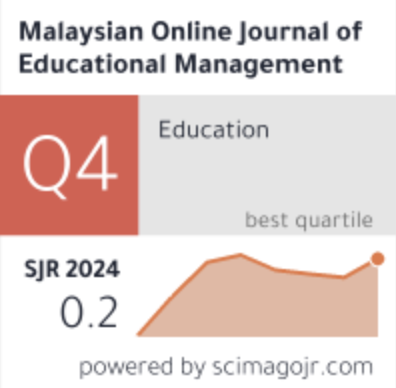THE ROLE OF ETHICAL LEADERSHIP, ORGANIZATIONAL SUPPORT AND PARTICIPATIVE DECISION-MAKING IN THE IMPLEMENTATION OF EFFECTIVE PERFORMANCE MEASUREMENT SYSTEMS IN HIGHER EDUCATION INSTITUTIONS
Abstract
The problem of poor performance of lecturers in Indonesian higher education institutions (HEIs) has led to an initiative by some HEIs to implement performance measurement systems (PMSs). Certain pivotal factors that determine effective PMS implementation have still not been explored sufficiently, and this is particularly the case in HEIs, in which the adoption of such systems is still at an early stage. That condition has been creating a research gap that needs further investigation. To meet this gap, this study aims to examine the relationship of ethical leadership, perceived organizational support and participative decision-making with perceived effective PMS implementation in HEIs. This study also examines participative decision-making as an intervening variable. Data were collected using a questionnaire survey distributed by post and online. The respondents were lecturers at private HEIs involved in PMS implementation in HEIs. Using a purposive sampling approach, a total of 1,000 lecturers were chosen for this study. Data from 203 usable questionnaires were analysed and hypotheses were tested using a partial least squares (PLS) approach. The results of this study indicate that there is a positive influence of ethical leadership (p-value 0.005), perceived organizational support (p-value 0.050), and participative decision-making (p-value 0.001) on the perceived effectiveness of PMS implementation. Moreover, participative decision-making also plays a role as the intervening variable (p-values 0.071 and 0.045). These findings show empirically pivotal factors that should be considered in achieving effective PMS implementation in HEIs.









